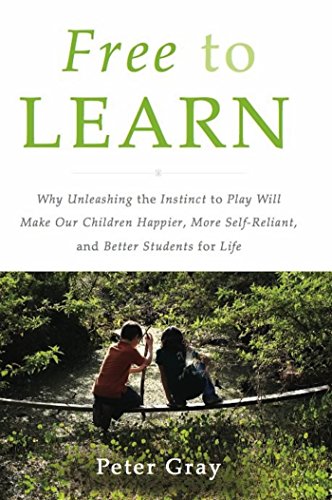Free to Learn: Why Unleashing the Instinct to Play Will Make Our Children Happier, More Self-Reliant, and Better Students for Life Link to heading
Summary Link to heading
“Free to Learn” by Peter Gray explores the essential role of play in child development and education. Gray argues that children’s natural inclination to play is vital for their emotional, psychological, and intellectual growth. Through an exploration of anthropology, psychology, and educational practices, the author demonstrates how self-directed play and exploration foster critical skills such as creativity, problem-solving, and resilience. The book challenges conventional educational paradigms, advocating for a more child-centered approach that gives children the freedom to pursue their interests and learn at their own pace.
Review Link to heading
Peter Gray’s “Free to Learn” is a compelling critique of traditional educational frameworks and a persuasive argument for the educational benefits of play. The book effectively combines research from various fields with personal anecdotes, making it accessible and engaging for a broad audience. One of the strengths of the book is its clear, evidence-based presentation of how modern schooling systems can restrict natural learning processes. However, some readers might find the book’s ideas idealistic or challenging to implement in standardized educational systems, which could be considered a limitation.
Key Takeaways Link to heading
- The Importance of Play: Play is an instinctual activity that is intrinsic to learning and essential for developing social, emotional, and cognitive skills.
- Self-Directed Learning: Children learn best when they have the freedom to choose and direct their educational activities, allowing them to pursue their passions and interests.
- Critique of Traditional Schooling: Conventional education often stifles creativity and curiosity, fostering compliance rather than independence.
- Role of Community and Environment: A supportive and resource-rich environment is crucial for nurturing a child’s natural curiosity and desire to learn.
- Parental and Educator Support: Adults should act as facilitators, providing guidance and support without dictating or controlling the learning process.
Recommendation Link to heading
“Free to Learn” is recommended for parents, educators, policymakers, and anyone interested in alternative education methods and child development. Readers who are open to rethinking traditional educational norms and who are curious about fostering a more holistic and natural learning environment for children will find valuable insights and practical suggestions in this book.
